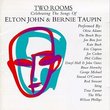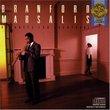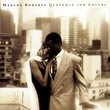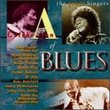| All Artists: John Alexander; Lucine Amara; Lili Chookasian; John Macurdy Title: Beethoven: Symphony No. 9 in D Minor, Op. 125 "Choral" Members Wishing: 1 Total Copies: 0 Label: Sony Release Date: 6/30/2010 Genre: Classical Styles: Historical Periods, Classical (c.1770-1830), Symphonies Number of Discs: 1 SwapaCD Credits: 1 UPC: 074643724128 |
Search - John Alexander; Lucine Amara; Lili Chookasian; John Macurdy :: Beethoven: Symphony No. 9 in D Minor, Op. 125 "Choral"
 | John Alexander; Lucine Amara; Lili Chookasian; John Macurdy Beethoven: Symphony No. 9 in D Minor, Op. 125 "Choral" Genre: Classical
|
Larger Image |
CD DetailsSimilarly Requested CDs
|
CD ReviewsHorrible recording of a great performance Bob DuHamel | El Cajon, CA USA | 05/09/2006 (3 out of 5 stars) "In my book this was the definitive performance of Beethoven's 9th even if Ormandy skipped the repeats in the second movement, as he is wont to do. The performance lives up to everything said by previous reviewers and more. If you believe that there are two classes of conductor, Eugene Ormandy then all the others, this is a must-have CD despite it's major flaws. I bought this recording on vinyl in the 1970s and finally got the CD. What a disappointment. The original analog recording sounds great in the softer areas but the tape is saturated in some of the loud parts. There are many places where you can clearly hear the harmonic distortion, especially when the timpani are playing loudly. There are also occasional dropouts, with a major one in the left channel about 1:25 into the first movement (it sounds like a wrinkle in the tape but seeing that it is in only one channel it's probably a flaw in the oxide). In the third movement there is so much crackling and popping that I could swear they digitized a vinyl recording for the CD. Seriously, I think the master tape must have been lost or damaged and this CD was made from a bad copy. Also, I know there is an Ormandy recording where he takes the repeats in the second movement. I borrowed it from the public library as part of the complete symphonies many years ago. Columbia apparently edited the repeats out to fit the symphony on a single vinyl disk for the single-disk release. Why didn't they use the unedited version here? There's room on the CD. This recording is a must-hear because it is an unbeatable performance of the 9th, and I'm glad to have it. However, don't clamp on your best headphones and expect to hear an excellently-engineered recording. The quality of the recording is, unfortunately, second-rate. Update: There is an excellent recording of the Ormandy performance of Beethoven's 9th available. It's out of print but available used here at Amazon if you search "Beethoven symphony 9 Ormandy". It is the two-disk set that includes the Choral Fantasy. It's a bit pricey on the used market but it sounds excellent and includes the repeats in the second movement." I love this recording! Santa Fe Listener | 11/09/1998 (5 out of 5 stars) "I find the interpretation to be subtle, without losing any of the passion of the piece. The recording quality is excellent as well. I highly recommend this disc to anyone." Ormandy isn't profound, but has there ever been a more sensu Santa Fe Listener | Santa Fe, NM USA | 09/25/2007 (4 out of 5 stars) "The collected reviewers who praise this as "the greatest" Beethoven Ninth are bucking the tide -- Ormandy's reputation for Beethoven is negligible, if you pay attention to critical consensus. Yet those of us over fifty remember a time when he and the Philadelphians dominated U.S. classical record sales, only giving way to Bernstein in the mid-Sixties. I approached this CD with little hope that Ormandy would be more than proficient. But I had a surprise in store. The first movement is better played and recorded than George Szell's esteemed Ninth. There is considerable drama, and the woodwinds in particular play with brio. This isn't profound Beethoven, but Ormandy surpasses many rivals in terms of sheer enjoyment.
The same hold true in the scherzo, which is alert and lively. Repeats are mostly skipped, but the engineers once again have caught the woodwinds in great form. Surely, I thought, the Adagio would prove to be Ormandy's downfall -- after all, this is the most exalted slow movement in Western music. HIs pacing is a bit brisk, about the same as Szell's (15:42), but the Philadelphians sound gorgeous compared to the well drilled but austere Clevelanders. As with the earlier movements, Ormandy plays this music for ravishing sensuality. This doesn't mean that the melodic line is slack; without probing the depths, Ormandy knows how to keep the whole movement together. The thin recording, tending to shrillness at loud dynamic levels, harms the opening of the Finale, with the cellos and double basses stabbing too fiercely; Ormandy sounds blunt here rather than cosmically dissonant. His pacing continues to be too fast and brusque, but that's better than languishing. Extroverted excitment is the order of the day throughout, which also isn't a bad thing. We head downhill, however, with a strident, nasal John Macurdy rushing through the great bass solo. At Ormandy's hectic pace, the whole solo quartet is hard pressed to handle their stressed vocal line. Soprano Lucina Amara is over-miked and out of tune. I dreaded the appearance of the Mormon Tabernacle Choir ( huge seller in that era), but they acquit themselves well, singing robustly and in tune -- comparison with the Wiener Singverein aren't absurd, even if the choir's German is stiff and syllabic. By the end, I was rooting for Ormandy, and this dark horse Ninth certainly delivers for three movements. It turned out to be an enjoyable surprise despite the rough and tumble finish." |

 Track Listings (4) - Disc #1
Track Listings (4) - Disc #1








